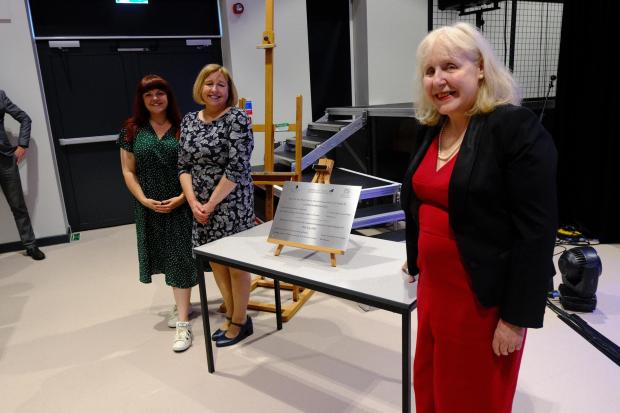A New Era in Sustainable Education
A groundbreaking £70 million school has officially opened its doors, setting a new standard for sustainable education in the UK. The King Henry VIII 3-19 School in Abergavenny, Monmouthshire, is the first all-through school in Wales to achieve operational net-zero carbon status. This innovative project highlights a commitment to environmental responsibility and modern educational practices.
Support kami, ada hadiah spesial untuk anda.
Klik di sini: https://indonesiacrowd.com/support-bonus/
The development was made possible through funding from Monmouthshire County Council and the Welsh Government. It was part of the Sustainable Communities for Learning programme, which focuses on creating long-term, eco-friendly learning environments. This initiative represents a significant investment in the future of education, emphasizing sustainability as a core value.
Cllr Laura Wright, Monmouthshire County Council’s cabinet member for education, emphasized the importance of the new facility. She stated, “This building is more than bricks and mortar. It’s a beacon for a modern education system in Wales, designed to inspire, to nurture, and to empower our young people.” Her words reflect the broader vision behind the project, which aims to create a space that fosters both academic and personal growth.
The official opening ceremony took place on July 10 and was attended by Welsh Government cabinet secretary for education Lynne Neagle. Ms Neagle praised the achievement, noting that the school will not only provide high-quality facilities but also offer students a unique learning environment. “What has been achieved here is truly inspiring for our learners,” she said, highlighting the significance of the project as a model for future educational developments.
Support us — there's a special gift for you.
Click here: https://indonesiacrowd.com/support-bonus/
During the opening event, the school showcased its through-school strategy with performances from pupils of all ages. These performances demonstrated the collaborative spirit and creativity within the school community. The event also served as an opportunity to celebrate the hard work and dedication of everyone involved in bringing the project to life.
Monmouthshire County Council was recognized for its leadership on the project by being named Client of the Year at the Constructing Excellence in Wales Awards. This accolade underscores the council’s commitment to excellence and innovation in public infrastructure. The council will now represent Wales at the UK National Awards later this year, further highlighting the success of the initiative.
Key Features of the School
The King Henry VIII 3-19 School incorporates several key features that contribute to its net-zero carbon status:
- Energy Efficiency: The building uses advanced insulation and energy-efficient systems to minimize energy consumption.
- Renewable Energy Sources: Solar panels and other renewable technologies are integrated into the design to generate clean energy.
- Sustainable Materials: The construction utilized environmentally friendly materials, reducing the overall carbon footprint.
- Green Spaces: The school includes landscaped areas that promote biodiversity and provide outdoor learning opportunities.
These elements not only support the school’s environmental goals but also enhance the learning experience for students. By creating a sustainable environment, the school encourages students to develop a deeper understanding of ecological issues and the importance of conservation.
Future Implications
The success of the King Henry VIII 3-19 School sets a precedent for future educational projects across the UK. It demonstrates that it is possible to build large-scale facilities while maintaining a commitment to sustainability. As more schools look to adopt similar practices, the lessons learned from this project can serve as a valuable guide.
Furthermore, the recognition received by Monmouthshire County Council highlights the importance of collaboration between local authorities and government bodies in achieving ambitious environmental goals. This partnership model can be replicated in other regions, leading to a broader impact on the education sector.
In conclusion, the opening of the King Henry VIII 3-19 School marks a significant milestone in the journey towards sustainable education. It not only provides a state-of-the-art learning environment for students but also serves as a powerful example of what can be achieved when environmental responsibility is prioritized. As the school continues to thrive, it will undoubtedly inspire future generations to embrace sustainability and innovation in their own communities.







